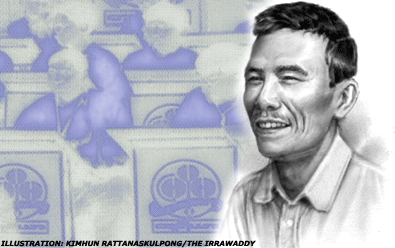Burma’s Unfinished Symphony
Is a national orchestra still just a midsummer night’s dream?
When the newly-constituted Burmese national symphony orchestra performed before an audience of dignitaries in
Nyein died in 1955, his dream of a national orchestra performing Burmese and Western classical music still unfulfilled.

“He is a pioneer,” wrote Ludu Daw Amar in her book Pyi-thu-chit-thaw Anu-pyin-nya-shin-myar” (“Artists whom the people loved”). “Myo-ma Nyein spent his whole life working for the formation of a symphony orchestra.”
Nyein’s struggle to create a truly representative, internationally respected body of musicians led him into a series of political as well as cultural entanglements with successive Burmese regimes.
His difficulties mounted in 1953, when
“From now on, I’ll only write songs about love,” he quipped.
Nyein’s eclectic tastes in music, particularly his love of Western classics, also got him into trouble. Conservative elements that resisted non-Burmese cultural influences, including several popular traditional musicians stonewalled his newfangled musical ideas.
Born in 1909, Nyein developed his musical skills early on in life. He took up the banjo in the years when the world was bopping to the new rhythms emanating from the
|
|
While open to Western music and the classics, Nyein also remained true to the Burmese tradition, the Mahagita, or “Great Music”, the collection of verses and songs passed orally from one generation to the other over the past three centuries.
In those days, it was even more difficult than today to acquire musical instruments, and Nyein would recall shopping for bamboo and dried gourd and then searching for an iron tub to equip his own band of
1 | 2 | 3 next page »
